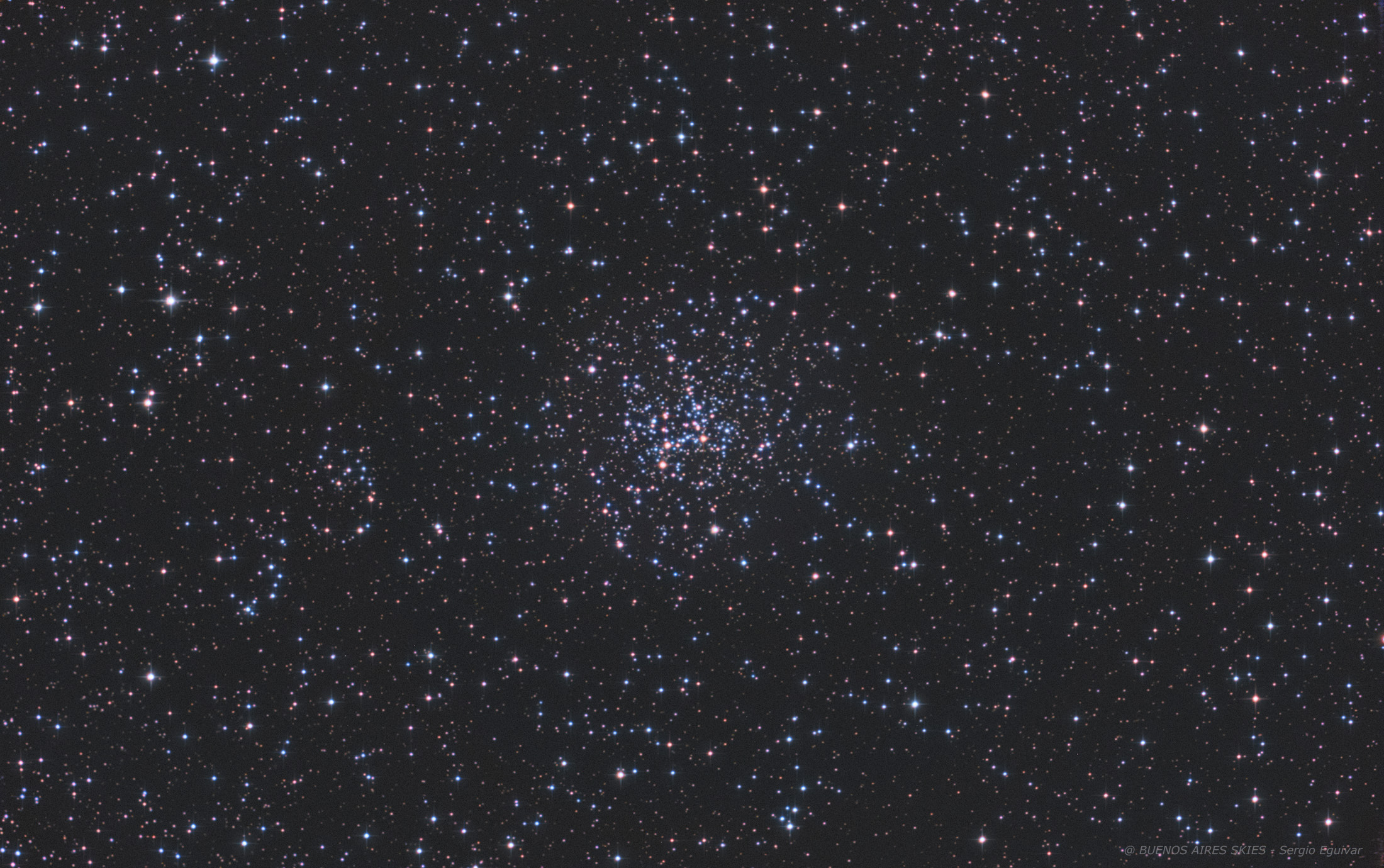
| HOME |
NGC 2194
OPEN CLUSTER IN ORION (THE HUNER)
(Image centered at: ra 06 h:13 m / dec + 12º 49')

February - 2024, Home Backyard in Martinez, Buenos Aires, Argentina
DATA
TYPE: Open Cluster
APPARENT DIAMETER: 10 arc minutes
APPARENT MAGNITUDE (V): 8,5
DISTANCE: 12,000 light years
IMAGE INFORMATION
INSTRUMENT: 6" ORION OPTICS UK (Ultra Grade Optics) w/Sky Watcher Coma Corrector (0.9x) working at at f4.5
CAMERA: QHY 183 MONO
MOUNT: VIXEN GDPX, OAG with Starlight Xpress Lodestar
FILTERS: BAADER LRGB Set
SKY CONDITIONS: urban skies - Bortle 8
EXPOSURES: LRGB (60,45,45,45)
OBJECT DESCRIPTION AND IMAGE SESSION
NGC 2194 is a rich and moderately concentrated Open Cluster. Classified as , with Trumpler class III1r. The cluster lies 33 arc minutes west from 73 Orionis. The brightest stars of the cluster are of magnitude 10, the brightest being of magnitude 10.26. The cluster has 149 members down to 15th magnitude. The main sequence turn off is at magnitude 14.5 and there are few red giants members. There are some stars that are bluer than the turn-off point and if they are members of the cluster they are possibly blue stragglers.The photometric study of the cluster by Sanner and al. concluded that the age of the cluster is 550 Myr and its distance is 2,900 pc. Piatti et al. determined the age of the cluster to be 400 Myr and its distance to be 3,200 pc. The cluster has low metallicity (−0.27 ± 0.06). It is located 130 pc south of the galactic plane.
NGC 2194 was discovered by German - British astronomer William Herschel on 11 February 1784, and it was added in his catalogue as IV 5.